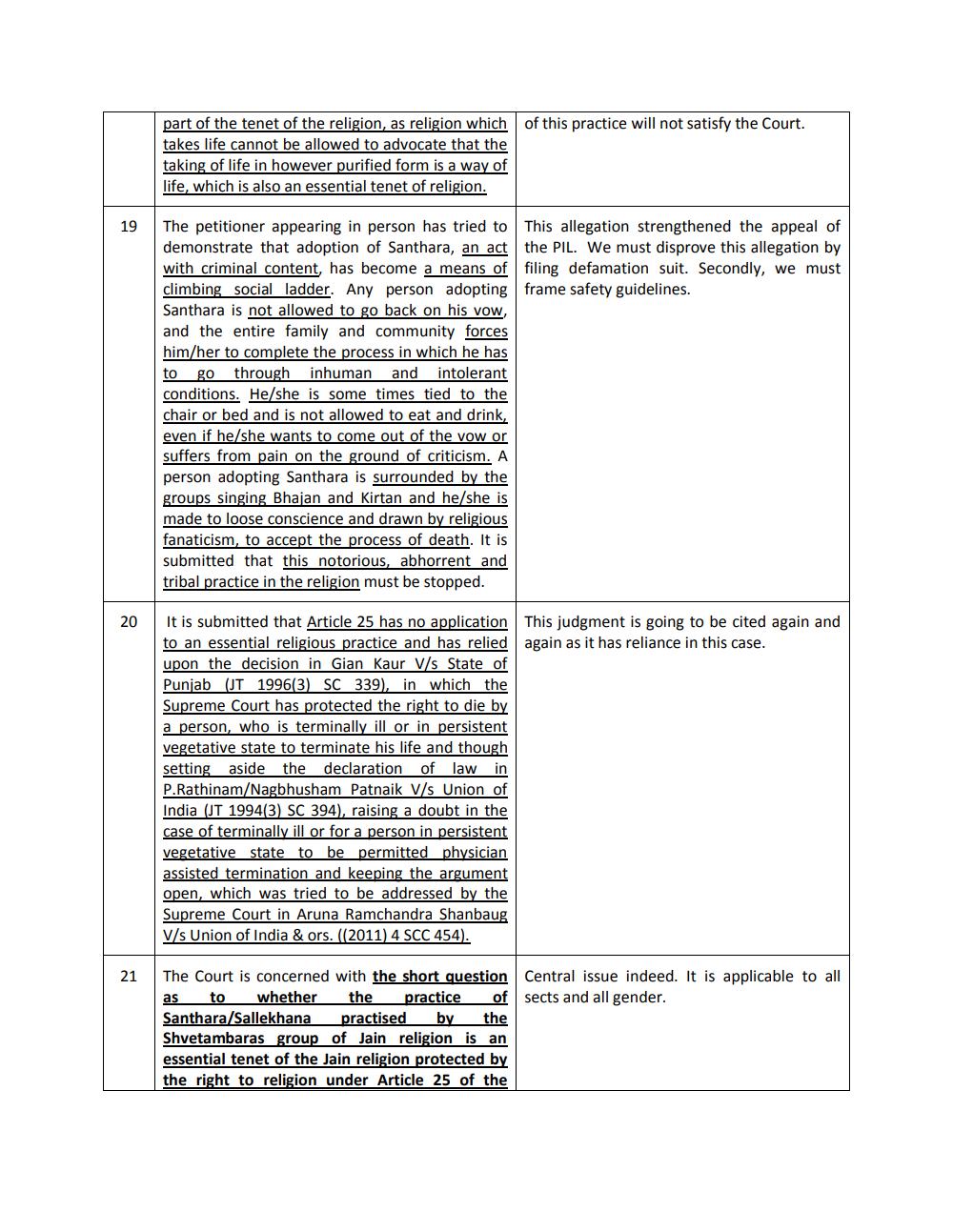________________
of this practice will not satisfy the Court.
part of the tenet of the religion, as religion which takes life cannot be allowed to advocate that the taking of life in however purified form is a way of life, which is also an essential tenet of religion.
The petitioner appearing in person has tried to This allegation strengthened the appeal of demonstrate that adoption of Santhara, an act | the PIL. We must disprove this allegation by with criminal content, has become a means of filing defamation suit. Secondly, we must climbing social ladder. Any person adopting frame safety guidelines. Santhara is not allowed to go back on his vow, and the entire family and community forces him/her to complete the process in which he has to go through inhuman and intolerant conditions. He/she is some times tied to the chair or bed and is not allowed to eat and drink, even if he/she wants to come out of the vow or suffers from pain on the ground of criticism. A person adopting Santhara is surrounded by the groups singing Bhajan and Kirtan and he/she is made to loose conscience and drawn by religious fanaticism, to accept the process of death. It is submitted that this notorious, abhorrent and tribal practice in the religion must be stopped.
This judgment is going to be cited again and again as it has reliance in this case.
It is submitted that Article 25 has no application to an essential religious practice and has relied upon the decision in Gian Kaur V/s State of Punjab (IT 1996(3) SC 339), in which the Supreme Court has protected the right to die by a person, who is terminally ill or in persistent vegetative state to terminate his life and though setting aside the declaration of law in P.Rathinam/Nagbhusham Patnaik Vs Union of India (JT 1994(3) SC 394), raising a doubt in the case of terminally ill or for a person in persistent vegetative state to be permitted physician assisted termination and keeping the argument open, which was tried to be addressed by the Supreme Court in Aruna Ramchandra Shanbaug V/s Union of India & ors. ((2011) 4 SCC 454).
The Court is concerned with the short question Central issue indeed. It is applicable to all as to whether the practice of sects and all gender. Santhara/Sallekhana practised by the Shvetambaras group of Jain religion is an essential tenet of the Jain religion protected by the right to religion under Article 25 of the




